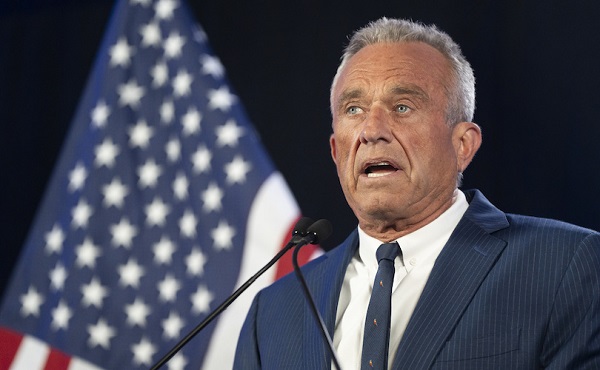armed forces
Things worth fighting for
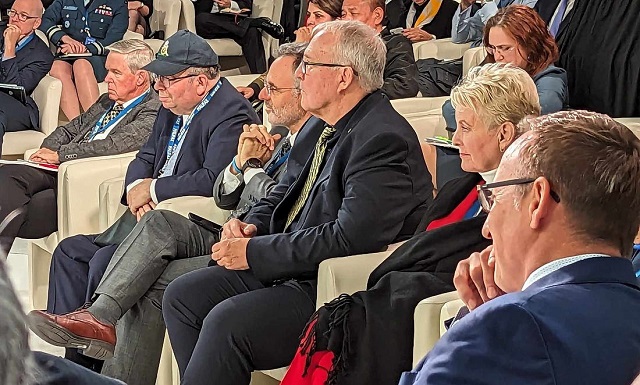
US ambassador David Cohen, Israeli ambassador Iddo Moed, Bill Blair, Cindy McCain, Peter MacKay. Photo: PW
Click here to subscribe to The Paul Wells Newsletter.
Of course people disagree. That’s what we’re trying to protect
“You really like going to those things,” an acquaintance remarked at Pearson Airport when I told him I was heading to the Halifax International Security Forum. Fair enough, I guess. I was just in Warsaw for their annual gathering of generals, defence ministers, think tankers and diplomats. I was in Halifax a year ago, and occasionally in previous years. I’ve been to security conferences in Herzliyah and Munich, long ago. The world is always on the brink of war, and lately has taken to spilling over several brinks at once. So there is always much to discuss.
Unfortunately much of what there is to discuss is horrible. On Saturday a panel moderator slumped into a plush chair, in front of the assembled cabinet ministers, diplomats, generals and think tankers, and introduced himself as Jason Rezaian from the Washington Post. He looked like any newspaperman from Central Casting, which means, approximately, like me. He reminded the audience that in 2014 he was taken prisoner by the Iranian regime and held in a Tehran penitentiary for over 500 days.
On Saturday at dinner I was reminded that Huseyin Celil, a Canadian citizen, has been in a Chinese prison for 17 years. Vladimir Kara-Murza, who spoke at Halifax in 2021, has been in a Russian prison for close to two years.
Prison is not even close to the worst fate that can befall a journalist, a dissident or a population. Halifax this year was preoccupied with continuing slaughter: in Ukraine, where the optimism of last year’s conference has been displaced by mounting concern; and in Israel and Gaza.
This newsletter is my full-time job. To support my work, consider becoming a free or paid subscriber.
I’d been at the conference venue, a Westin hotel at the end of Hollis St., for perhaps ten minutes when a visiting soldier who knows Ukraine well told me that pushing the Russians all the way out of Ukraine — that is, out of Crimea and the eastern Donbas region — would take twice as many weapons and equipment as the West has sent Ukraine to date. This was the soldier’s way of engaging a debate opened by former NATO secretary-general Anders Fogh Rasmussen, who’s suggested bringing Ukraine into NATO without the regions currently occupied by Russia. This sounds easier, but as former Estonian president Toomas Ilves told me in an interview that will soon be on my podcast, a Russian Crimea and Donbas would essentially be permanent bases from which to harass the rump Ukraine.
So much for the heady optimism of a year ago, when fighting the Russians to a standstill still felt like some kind of triumph. Joe Biden’s promise to back Ukraine “for as long as it takes” is starting to sound ominously like a promise to keep up the West’s end of a stalemate. Several commentators at Halifax said that if all the weapons that were sent to Ukraine in 2023 had arrived in 2022, 2023 might have gone better. As for 2024, if it features mounting Ukraine fatigue in Western populations and ends with Donald Trump’s re-election, this year might look rosy in retrospect.
Of course the big complicating factor in any discussion of today’s world is Israel’s response to Hamas’s Oct. 7 attack. The conference agenda had plainly undergone substantial surgery to accommodate a discussion of the Gaza violence and its repercussions. A crowd of local pro-Palestinian protesters appeared at intervals across the street from the conference hotel, although they were loudest on Friday night when just about everybody attending the conference was at a dinner several blocks away.
My own sense is that the establishment and perpetual defence of a Jewish state of Israel is very partial payment toward the heavy debt humanity owes the Jewish people. I note that there was a robust and enduring ceasefire in Gaza as late as October 6, and that Hamas brought that ceasefire to a monstrous end. Hamas having opened hostilities, it falls to Israel to end them, by destroying Hamas’s ability to contemplate or deliver any similar attack in the future. Carrying out that task is inevitably an enterprise of horrifying violence.
Too much, say the protesters. “You support GENOCIDE,” they shouted outside the Westin Nova Scotian. I guess that’s going to depend on definitions. I had dinner on Saturday with Dolkun Isa, the president of the World Uyghur Congress, and I got the distinct impression he’s against genocide. Yet I have a hard time dismissing those protesters outright just because they weigh horrors differently from me. I have friends who seem to have spent the last six week gleefully looking for reasons to write off people who disagree with them. I’ve often thought moral clarity was overrated. Shouldn’t these questions be morally tormenting? And in a world where such lesser matters as vaccine mandates and carbon taxes become the stuff of furiously polarized elections, should we really be so surprised that life and death on a vast scale produces divisions too?
Share
I was nervous when I heard, late on Friday, that the Halifax Forum organizers were going to give their highest honour, a prize in the name of the late U.S. Senator John McCain, to “the people of Israel.” That sure wouldn’t go over well with the protesters outside the Westin. As it happened, by Saturday morning it was raining and the protesters were nowhere to be seen. More to the point, the prize went, not just to any people of Israel, but to Brothers and Sisters In Arms, an organization that spent much of 2023 protesting against Benjamin Netanyahu’s autocratic judicial “reforms,” but pivoted to assisting recovery efforts after the Oct. 7 attack. A neat way of emphasizing that Israel is a stubbornly pluralistic democracy, and that the Israeli state is not always the best steward of the Israeli people’s interest.
The conference, and the individual participants even more so, found other ways to express a diversity of opinion that might have surprised outsiders. (It’s easy enough to see for yourself: streaming archives of most of the sessions are on Youtube.) A panel with the title “Victory in Ukraine = Example For Israel” featured panelists politely disagreeing with the premise of the title. For starters, Ukraine had no settlements on occupied Russian territory, as one questioner in the audience pointed out.
Mouaz Moustafa, executive director of the Syrian Emergency Task Force, was one of several people at the forum who argued that the Israeli government’s heavy and deadly bombardment of Gaza is counterproductive at best. “Such a campaign, where there are thousands and thousands more children being killed than Hamas fighters, is not something that makes, frankly, Israel or the West safer,” he said.
This sentiment — that even when brutally wronged, Israel is not automatically right — was reinforced Saturday afternoon by the publication in the Washington Post of a long essay on Israel-Gaza by Joe Biden. Biden moved early to support Israel and ward off Iranian escalation, moving two aircraft carriers to the Mediterranean and himself to Israel. Now he was signaling — hell, saying in so many words — that his support had limits:
“There must be no forcible displacement of Palestinians from Gaza, no reoccupation, no siege or blockade, and no reduction in territory. And after this war is over, the voices of Palestinian people and their aspirations must be at the center of post-crisis governance in Gaza.
As we strive for peace, Gaza and the West Bank should be reunited under a single governance structure, ultimately under a revitalized Palestinian Authority, as we all work toward a two-state solution. I have been emphatic with Israel’s leaders that extremist violence against Palestinians in the West Bank must stop and that those committing the violence must be held accountable. The United States is prepared to take our own steps, including issuing visa bans against extremists attacking civilians in the West Bank.”
If Ukraine and Israel were the conference’s main themes, another repeated refrain was that bad things often come in threes, and war in Europe and the Middle East could become even grimmer if they were joined by conflict in the Asia-Pacific. Several speakers referred to China as the West’s “pacing threat,” which essentially means only China has the means and desire to compete with the West in shaping the world.
It was in this context — of a world growing constantly more dangerous in constantly more complex ways — that so many hallway conversations in Halifax featured variations of the observation that Canada is increasingly close to being a failed state. It sure would be great if Canada could contribute reliably to dissuading Chinese ambitions in the Asia-Pacific, but that would require a working navy, and Wayne Eyre told the conference we’re fresh out. Bill Blair, Justin Trudeau’s latest defence minister, met the large U.S. congressional delegation that always flies up to Halifax from Washington, and I’m told most of the questions had to do with his department’s annual Performance Report, which says that over the past year, “the growing demands for CAF responses challenged the already unstable foundation of operational readiness given personnel shortfalls, equipment deficiencies, and insufficient sustainment including critical stores of ammunition.”
Blair said at the conference that Canada needs to make “significant new investments” in defence; he was also heard to say, in private meetings, that in delivering this message within the government he faces “headwinds from the centre.” The headwinds will be portrayed on Tuesday, in a closely-watched speech, by Chrystia Freeland, who was said to be so displeased with Anita Anand’s constant push for more defence spending that soon both Anand and Blair had new jobs. Nearly every ambassador in Ottawa begins nearly every conversation by asking whether the Trudeau government or any potential successor will take the burdens of a troubled world more seriously anytime soon. Of course, Canada being a sovereign country, these decisions are not made by ambassadors. But they get to ask, and notice.
I suspect Freeland’s delivery of her economic and fiscal update will be one of the most important political moments of the last five years. Nobody really has any idea what the minister’s statement will say. She is the champion of activist government on odd-numbered days and of mighty fiscal restraint on even. She will be sure of some new direction on Tuesday, and I suppose it’s a toss-up whether she will even remember by Friday what that direction was supposed to be. The good news, as we were reminded in Halifax, is that Canada is close to being the least of the world’s problems. The bad news is that it also seems determined to become the least of the world’s remedies.
Paul Wells has written for the Toronto Star, the National Post, and the Montreal Gazette. Perhaps most Canadians know him best for the 19 years he spend writing long form journalism with Maclean’s magazine and for his regular appearances on CBC’s The National.
Click to visit the Substack of Paul Wells.
For the full experience, upgrade your subscription.
armed forces
Mark Carney says Canada will give ‘military assistance’ to Ukraine at taxpayer expense
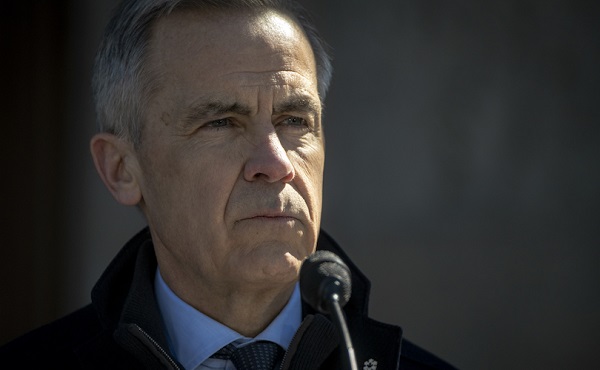
From LifeSiteNews
The prime minister’s office confirmed that Canada would commit to ‘direct and scalable military assistance’ in Ukraine when the war has calmed down.
The Canadian government under Liberal Prime Minister Mark Carney has made a promise for “military assistance” to Ukraine once a ceasefire is in place.
Carney made the comments after attending a recent virtual meeting for the “Coalition of the Willing” pro-Ukraine nations.
Late last week, Carney’s office confirmed that Canada would commit to “direct and scalable military assistance” in Ukraine when the war has calmed down.
At the “Coalition of the Willing” meeting, French President Emmanuel Macron said 26 allies of Ukraine promised to deploy their armed forces via land, sea, or air to the nation as a “reassurance force,” but not until the war with Russia is officially over.
Placing Canadian troops in Ukraine would come at a huge cost to Canadian taxpayers, who are already dealing with high inflation and high taxes.
The reality of the Ukraine war is grim. To date, it is estimated to have cost the lives of more than 1.5 million people.
Retired Col. Douglas Macgregor accused Western powers of sustaining a war built on illusion, not diplomacy.
From black-market weapons ending up with cartels to unchecked government corruption, Macgregor warned that U.S. aid is fueling chaos and not peace.
Critics of Canada’s support for Ukraine, such as from People’s Party of Canada (PPC) leader Maxime Bernier, have said Canada should not be involved in the Ukraine-Russia conflict.
He noted how politicians, including Carney and Canadian Conservative Party leader Pierre Poilievre, “standing” with the nation in an escalating war realistically means they support Ukraine’s eventual “destruction.”
armed forces
Poilievre vows to rebuild Canada’s military, replace ‘woke culture’ with ‘warrior culture’

From LifeSiteNews
The Conservative Party leader has pledged to increase military spending and re-emphasize ‘bravery, honour, patriotism and strength.’
Conservative Party leader Pierre Poilievre has promised to rebuild Canada’s military after years of “ideological extremism” under the Liberals.
In an August 16 open letter to serving Canadian Armed Forces (CAF) members at CFB Wainwright, Poilievre made 22 commitments to restore Canada’s military while ending the “woke culture” promoted by the Liberal government.
“After years of Liberal neglect, underfunding, and ideological extremism, our military is hollowed out. The world is becoming more dangerous, and our enemies are watching,” Poilievre declared. “It’s time we send them a message: Canada is back.”
“Conservatives believe now is the time to make the largest rebuild of our military in a generation, beginning in the North and extending across our land,” he continued.
Poilievre’s plan included increased military spending, replenishing Canada’s weapons which were donated to Ukraine, and boosting support for military members and their families. It also outlined support systems for veterans.
He further promised to “replace the woke culture with a warrior culture.”
“No more DEl. No more weird political agendas,” Poilievre declared. “The military is a fighting force, not an instrument of social engineering. Bravery, honour, patriotism and strength are its pillars.”
“To serve is to sacrifice,” he continued. “But service should not mean neglect. I will fight for you to once again be respected, equipped, and empowered. We will put our country first, and that begins with giving our Armed Forces the tools and culture of victory.”
The Canadian military is currently suffering from recruitment shortages, which many experts have revealed is a result of embracing and pushing the LGBT ideology within the CAF.
In 2023, officials admitted that the nation’s military is shrinking to dangerously low numbers as Liberals continue to push the LGBT agenda on Canadian soldiers. In addition to low recruitment, the military is struggling to retain soldiers.
As LifeSiteNews previously reported, the military spent Canadians’ tax dollars on polls, guest speakers, presentations, workshops, and LGBT flags. The workshops covered topics including “the gendered nature of security,” while one talk discussed “integrating gender and diversity perspectives.”
In 2021, the defense department revealed that they have two separate committees and eight programs which worked to appoint homosexual advisors to “innovate” religious instruction and gender-neutral uniforms.
In June 2023, Canadian troops in Latvia were forced to purchase their own helmets and food when the Liberal government failed to provide proper supplies. Weeks later, former Prime Minister Justin Trudeau lectured the same troops on “climate change” and disinformation.
A Canadian Armed Force member previously told LifeSiteNews that between the COVID vaccine mandates and pushing the LGBT agenda, Canadian soldiers have lost confidence in the military.
He explained that ideological agendas are driving away new recruits, as the primary source of recruitment for the military is “Saskatchewan farm boys” who want to serve Canada – not radical left-wing ideologues.
“That farm boy looks at the army and with the blue hair and the face, piercings and ideologies and all that stuff,” he said. “And it doesn’t have the same pull because it doesn’t represent the farm boy’s values.”
“This is not the Canada that we signed up to defend. It’s an alien ideology that people don’t resonate with,” he continued. “These are not Canadian values of freedom and democracy. These are cancel culture values of censorship, of authoritarianism, of radical ideologies that are alien to our culture.”
In one such example of how this ideological mandate has impacted soldiers, a commanding officer of the 4th Canadian Division Support Group (CDSG) of the Greater Toronto Area Detachment threatened personnel who dared to throw out tampon dispensers which had been placed in men’s bathrooms as part of the military’s new “inclusion” policy.
-

 Alberta1 day ago
Alberta1 day agoAlberta deserves a police force that actually reflects its values
-
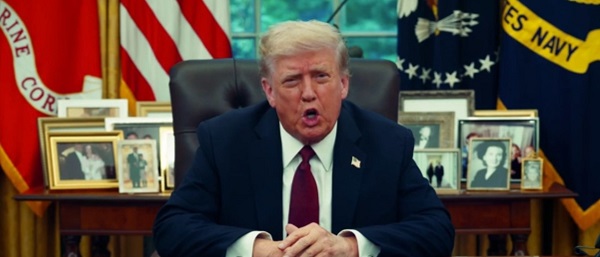
 Crime2 days ago
Crime2 days ago‘Dark Moment For America’: Trump Addresses Nation After Kirk Assassination
-

 Crime18 hours ago
Crime18 hours agoFormer NYPD Inspector Breaks Down How Charlie Kirk’s Shooter Will Be Caught
-
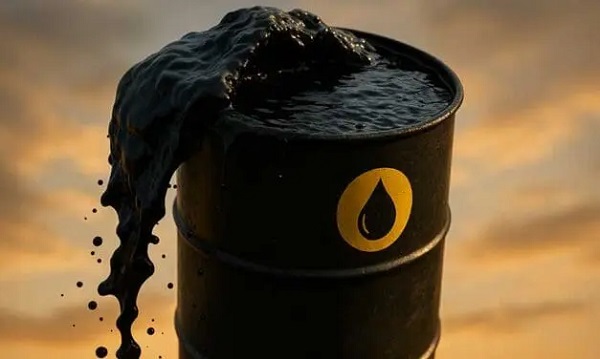
 Alberta1 day ago
Alberta1 day agoOPEC+ chooses market share over stability, and Canada will pay
-
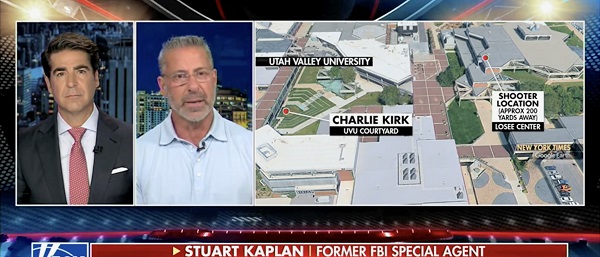
 Crime1 day ago
Crime1 day agoFormer FBI Agent Says Charlie Kirk Assassination May Have Been ‘A Professional Hit’
-

 Crime10 hours ago
Crime10 hours agoArrest made in Charlie Kirk assassination
-

 Alberta1 day ago
Alberta1 day agoProvincial pension plan could boost retirement savings for Albertans
-

 Bruce Dowbiggin1 day ago
Bruce Dowbiggin1 day agoKirk’s Killing: Which Side Can Count on the Military’s Loyalty Now?


